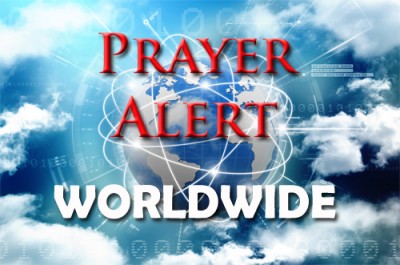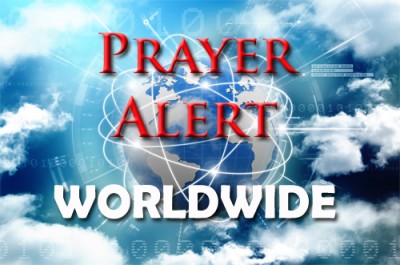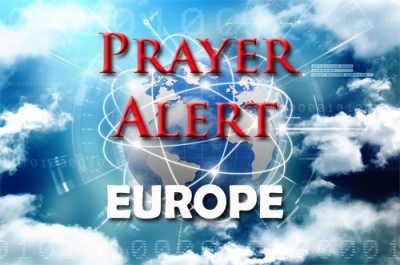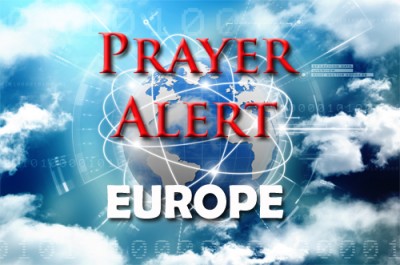USA: Police hostility and wrongful deaths
29 Jun 2018A Georgia police officer’s body camera showed him striking a fleeing suspect with his patrol car. He first attempted to block the fleeing man by swerving onto the kerb, then steered back onto the road and hit him from behind. After much deliberation, investigations were finally carried out and his employment was terminated. In Florida a family is calling for justice after a federal jury cleared a sheriff’s deputy of using excessive force when he shot a man dead in the man’s garage. The family were awarded just $4 in damages, that’s £3.06p, for funeral expenses and pain and suffering in a wrongful death lawsuit. The man was a 30-year-old African American and father of three. The deputy was responding to a noise complaint about music coming from his garage. Over two years ago Amnesty International reported ‘Hundreds of men and women are killed by police each and every year across the United States’.
Tawanda is a Global Mission Fellow for ‘Peace Mindanao’ in the Philippines, working for human rights, peace education and conflict resolution. He is from Zimbabwe with a Bachelor of Social Science degree and a master’s degree in public policy and governance. He says, ‘God has always been involved in my life and it is through his grace that I was lifted from the dust to become someone.’ In May he was detained for overstaying his visa after initiating the process for an extension. Miracle is also a Global Mission Fellow with a Bachelor of Social Sciences degree from the Catholic University of Malawi. She serves the indigenous people. The Bureau of Immigration withheld Miracle’s passport, restricting her ability to return to Malawi. The United Methodist Church is calling for both their passports to be returned and for swift departures home.
Poland’s Supreme Court ruled against a print-shop owner who refused to create a banner for a homosexual group. He believed it would be wrong to promote something that God calls sin. The matter began in 2015 when Adam J., turned down the project for the LGBT Business Forum. The matter went to the regional court which ruled against Adam. While Polish law allows refusal for a ‘justified cause,’ his religious convictions were not a sufficient argument. Poland’s minister of justice, Zbigniew Ziobro, filed an appeal to the Supreme Court, which upheld the ruling on 14 June. Ziobro said the ruling violates the freedom of conscience enshrined in the constitution. ‘It’s about principles not prejudice. If a service provider refuses to carry out a service, the customer may turn to their competitors.’ Alliance Defending Freedom International has now filed an intervention with the Constitutional Tribunal of Poland decrying the outcome of Poland’s high court.
Spain: Revelation TV responds to 6000 Euro fine
29 Jun 2018The National Commission of Markets and Competition (CNMC Spain) has fined UK’s Revelation TV 6,000 Euro. The Christian ministry has broadcast in Spain through satellite since 2012. The fine comes after an individual complained to CNMC about one of the two-hour programmes which discussed a homosexuality news item for 13 minutes. The licensing authority said the show’s comments could be considered 'threatening to the dignity of homosexual and transgender groups'. Revelation’s CEO said, ‘The programme was expressing a biblical view on the subject and homophobia had no part in it. We will take the matter through the courts if necessary. Our lawyers said that if they find us guilty they will have to find every Roman Catholic Church guilty also. Revelation TV is a Christian station, owned by a charity, dealing with issues form a Christian perspective. We look at the news, we have Bible study, worship, church services and everything you would expect of a Christian TV station.’
Technology - Virtual Church and ‘Ask Alexa’
29 Jun 2018St Mildred’s in south London has created WOW Church to attract the 13-to-25 age group to faith through a virtual service. The online church runs from 10 a.m. to 10 p.m. Visitors can talk to twenty different chat-hosts taking turns answering questions and communicating with people through the website. People watch videos about faith and can submit a short prayer and light a virtual candle. An average of two to three conversations take place each day, and 100-150 people visit it weekly. St Mildred’s said they considered a youth Alpha but didn’t think anyone would come (saying they weren’t good with teens). Most of the people they chat to are lonely or have reservations about church. Pray for the ‘virtual’ community of lonely people to begin to want to actually meet physically in a Christian community. Meanwhile, The Church of England has launched an ‘Alexa skill’ to answer questions about faith and prayer, and help to find a church based on the user’s location. See
Fire on Saddleworth Moor
29 Jun 2018Firefighters fear that a change in wind direction across a moorland fire could put life in danger. It is currently growing and could take weeks to extinguish. Fire chiefs say it is the worst moorland fire in living memory to hit Saddleworth. The impact could be seen from space by Nasa satellites picking up smoke plumes. Air quality levels in and around Manchester are being monitored regularly. A handful of local schools have been closed. Experts warned that high levels of pollutants generated from the blaze could have a significant effect on people’s health. By 28 June 100 soldiers were being trained by the fire services. The fire had covered seven square miles. The active ‘fire front’ stretched 2.5 miles and an RAF Chinook helicopter was made available. The public are advised to keep country lanes free from cars so that the emergency services can access them easily. Pray for firefighters working rolling 12-hour shifts. Pray for a downpour of rain.
Brexit – critical discussions – time running out
29 Jun 2018A civil servant involved in Brexit negotiations, wishing to remain anonymous, said we are all over the place and don’t know what we want and Europe’s negotiators are behaving like total <expletive>. Macron warned European leaders to remain focused on their ‘collective interest’ during Brexit negotiations lest an ‘unfavourable situation’ befall the remaining 27. He said the continent could suffer if individual countries used Brexit to follow their own interests and they must avoid the ‘prisoner’s dilemma’ (a game scenario – two people act for their own gain and both lose out). We are in a critical discussions season. Customs union membership means goods pass freely between countries. Europe sells a lot to the UK, and complicated business supply chains avoid border-related hassles. It would solve the Irish border issue. But membership would not cover services and the UK exports services to Europe. Neither could we do trade deals with countries outside the EU. See also
‘Voices of the Silenced’ being silenced
29 Jun 2018The Voices of the Silenced film reminds us that the Christian Gospel has influenced western civilisation to the point that secularists build on its legacy while failing to acknowledge Christian influences. The film suggests if we forget the foundations of our Judeo-Christian culture, new totalitarianisms will replace them. Filmed in over 50 locations, the documentary interviews 15 individuals who are emerging out of homosexual lifestyles and a further 18 commentators on the subject. The film’s trailer states that in the space of a few decades, sexual politics has become a dominant force re-shaping social relationships, reinventing our understanding of ‘equality’ and toppling beliefs that brought Europe and America into the modern era, adding that Christian values and the sexual ethics have been displaced by a new belief in schools, courtrooms and churches. In some UK Churches the film’s screening is causing violent reactions. See also







